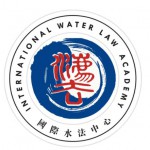Researching Non-State Actors: Methodological Issues and Challenges

6 November 2024.
14:00 – 15:50
This is a hybrid event.
UNU-CRIS - Potterierei 72 - 8000 Bruges
Welcome and introduction:
Frank Mattheis
United Nations University – CRIS
Editing a Handbook of Non-State Actors in East-West Relations, methodological questions
Péter Marton
Institute of Global Studies, Corvinus University
Marking the very recent publication of The Palgrave Handbook of Non-State Actors in East-West Relations, edited by Péter Marton (as editor-in-chief), along with Gry Thomasen, András Rácz and Csaba Békés (as editors), with over 50 chapters by as many authors, the presentation offers an appraisal of the key methodological challenges and the approaches taken by various authors in researching the diverse set of cases covered in this volume. To lay the groundwork for the discussion, a definition of non-state actors is presented, briefly, along with two distinct conceptual models designed for process-tracing analysis. The greater part of this presentation offers an overview of the volume's case studies, which offer a rich set of examples to consider as to data collection strategies and deeper epistemological issues. Given its focus on methods, a unique aspect of the presentation is the chance to discuss the "meta-methodological" issue of recruiting for and ultimately producing a large volume of this kind — a look at the back office or the kitchen secrets as such.
Methodological issues in research on Belarusian opposition in exile
Ekaterina Pierson-Lyzhina
Université Libre de Bruxelles - REPI
This talk will provide in-depth insights into methodological issues related to conducting research on a particular non-state actor, opposition in exile from an autocracy. It will draw on my research for two contributions to the volume edited by Péter Marton and, more broadly, on my past years research on the Belarusian opposition in exile. I will explain how my own hybrid positionality of a Western and non-Western scholar has affected data collection and ethical issues. It also explains how I tried to resolve safety issues related to data collection and storage, which are of particular importance when researching NSAs from autocracies.
Researching on Abkhazian Civil Society Organisations: a methodological reflection
Gaëlle Le Pavic
Ghent University / United Nations University – CRIS
This presentation explores the methodological challenges of conducting remote research, with a particular focus on the Abkhazian Civil Society Organisations (CSOs). While remote research has been a longstanding practice, the COVID-19 pandemic accelerated its adoption. However, However, conducting research without physical access to a field site presents distinct challenges, particularly in terms of reaching participants and the type of data that can be gathered. Despite these limitations, I argue that the absence of physical presence should not deter researchers from documenting and analyzing situations that might otherwise remain overlooked. Although I was unable to travel to Abkhazia, I conducted ten remote interviews with representatives of Abkhazian CSOs over two years, enriching the study with a longitudinal perspective.
Questions and Answers (10min)
Comparative regionalism and the study of non-state actors:
Frank Mattheis
United Nations University / CRIS
With reference to the Handbook of Regional Cooperation and Integration, this talk will address how comparative regionalism approaches multi-level governance and in particular the role of non-state actors. This talk will discuss the prevalent state-centrism in regionalism research as well as ways to understand how non-state actors shape regionalism from below.
Positionality in research on non-state actors in East-West relations:
Fabienne Bossuyt
Ghent University / United Nations University – CRIS
This talk will address why positionality matters in the context of doing research on non-state actors in East-West relations. It will provide an overview of how a Western researcher’s positionality can affect their research, and in particular, their data generation when they examine non-state actors in countries of the Global East. Among other things, it will show how positionality can affect access to respondents, safety of respondents and selection of respondents. Attention will also be paid to how the deeply engrained western bias that the Global East still has to catch up with the Global North can influence data generation and data analysis.
Discussion with the audience
Moderator: Maria Rodriguez Alcazar
Ghent University / United Nations University – CRIS
Biographies of the Speakers
Frank Mattheis is a research fellow at the United Nations University - Institute on Comparative Regional Integration Studies (UNU-CRIS), where is the coordinator of the research cluster "Regions and Cities Governance Lab". He is also a guest professor at Ghent University. His research focuses on how regional organisations evolve as institutions and how they engage with each other.
Péter Marton is an Associate Professor at the Institute of Global Studies at Corvinus University and Adjunct Professor at McDaniel College Budapest. His fields of research include Security Studies, Foreign Policy Analysis and Global Public Health. He has published, inter alia, in Defence Studies, Communist and Post-Communist Studies, the Journal of Soviet and Post-Soviet Politics and Society, the Journal of Contemporary Central and Eastern Europe, and New Perspectives. He is co-editor of the Palgrave Encyclopedia of Global Security Studies.
Ekaterina Pierson-Lyzhina is a substitute lecturer at Free University of Brussels (Université libre de Bruxelles-ULB) from which she obtained a PhD in political and social sciences in 2020. She is also delivering a cycle of lectures on Belarusian foreign policy at Belarusian Free University (online), financed by the EU. Her research has two axes: the foreign policies of limited manoeuvring of autocracies and different facets of resistance by opposition groups in exile, using Belarus as a case study. In 2022-23 she was part of a research project focusing on the Belarusian exile in Central and Eastern Europe financed by the French ICM. She has also contributed to the EaP Index with research on the sustainable development of the EaP.
Gaëlle Le Pavic is an associate researcher at the United Nations University - CRIS and at Ghent University, where she recently completed her PhD with a thesis titled Social Services within and across Contested Border: Insights from Transnistria, Abkhazia and Samegrelo. Her research involved, extensive fieldwork in Transnistria and the Samegrelo region of Georgia, while data collection for Abkhazia was conducted entirely online. Currently, Gaëlle holds a fellowship at the Leibniz Institute for Regional Geography (IfL) in Leipzig, where she works on the production of space in the context of the Georgian Abkhazian case.
Fabienne Bossuyt is an Associate Professor at the Ghent Institute for International and European Studies (GIES) at the Department of Political Science at Ghent University as well as an Associate Research Fellow at United Nations University - CRIS. She is a senior lecturer in the MA programme in EU Studies and the MA Programme in Global Studies. In addition, she is co-director of the Eureast Platform of Ghent University. She is also active as an affiliated researcher of EUCAM and a member of the Academic Board of the European Neighbourhood Council.
REGISTER IN PERSON
Upcoming Events
Similar Events
No events found.



